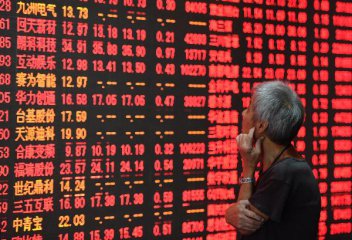
A recent study conducted by analysts at the Beijing-based Cinda Securities reveals that qualified foreign institutional investors (QFIIs) had made big money through their investments in China's A-share market over the past 13 years, the Shanghai Securities Journal reported Wednesday.
The study shows that the combined accumulative yields earned by the QFIIs had grown some 14-fold with their annualized compounded yield rate at as high as 22.11 percent over the period between the beginning of 2005 and the first quarter of 2018.
The study also finds that the performance of the QFIIs had beat that of a flagship A-share stock index compiled by the Hong Kong-based financial data provider Wind in 30 quarters out of the past 53 quarters with a winning rate of 56.6 percent.
Chinese fund managers have reached consensus over the reason for the QFIIs' excellent performance in investing in China's A-share market.
From their perspective, the strategy adopted by the QFIIs is quite simple: buy in when the market is at a low point and sell out when the market rebounds high with their focus always on the so-called value investing.
"Taking the bull markets appearing in 2007 and 2015 for example, we could see that the QFIIs had been resolutely and gradually reducing their holdings of A-share stocks even if the market was approaching new highs," observed a senior analyst at a Shanghai-based fund management firm. "That demonstrated the QFIIs' ability to secure their yields in bull markets."
Take Oppenheimer Holdings' strategy for its holdings in Moutai's shares for instance. The U.S. investment bank bought in the Chinese liquor maker's outstanding shares for about 1 billion yuan (148 million U.S. dollars) in the fourth quarter of 2014, becoming one of the latter's top 10 largest shareholders of its outstanding shares at the time.
After being patient for about four years, Oppenheimer started to quietly decrease its holdings of Moutai's shares in late 2018 with its yields projected to reach billions of yuan at the end.
Analysts believe that the QFIIs' preference for value investing has also been exerting a far-reaching influence on the styles of domestic investors as more and more Chinese funds see the QFIIs as their role model when choosing their investment strategies.





















Latest comments